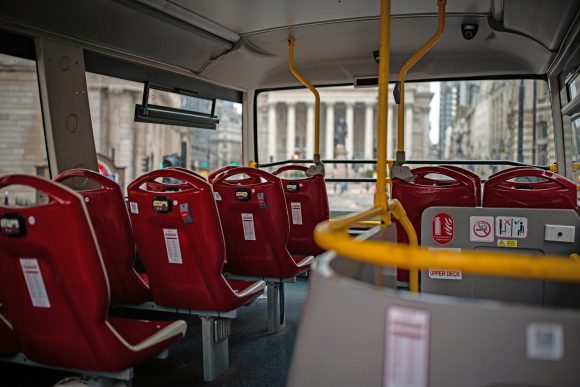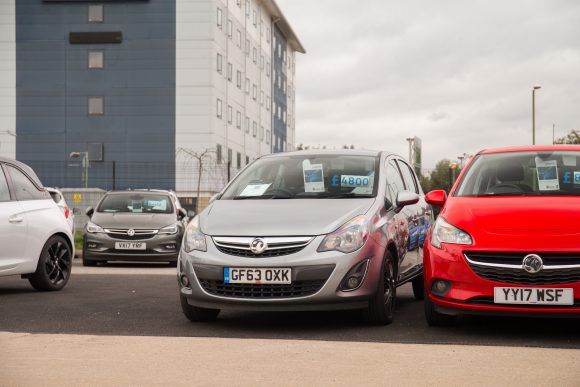For the motor industry, the past few months have been a challenge that nobody could have prepared for.
The national lockdown came just as optimism was improving, following several years of political turmoil and policy changes that dented confidence in the market.
Dealers have now had to build back their businesses after sales came to a hard stop and adjust to a totally different retail environment.
This is all with reduced staff, limited capacity and less stock, not to mention supplier and service constraints, including finance providers restricting criteria.
While they’ve been hit hard, dealers are resilient. Despite the obstacles, if anything, now is the chance to build back better and improve the sector for years to come.
In fact, 95 per cent of dealers have said that they are confident that their business will survive the impact of coronavirus, according to our research.
Since dealerships reopened, the release of pent-up demand has lifted sales back up from near-zero as people got their hands on the new car they wanted over lockdown.
The pandemic also caused a significant shift in consumer attitudes, as reticence to use public transport caused more people to look to car ownership instead.
This is a trend that is not showing signs of slowing.

A McKinsey survey in September 2020 showed that a third of consumers value constant access to a private vehicle more than in pre-Covid times – particularly amongst younger people.
However, that’s not to suggest that it’ll all be smooth sailing from now on. In fact, dealers are still facing some significant bumps in the road before they can build back better and stronger.
Crucially, production challenges are a big obstacle in the way of recovery.
Where demand had begun to grow above pre-pandemic levels, supply hasn’t been able to keep up.
This is because manufacturers are continuing to struggle with restrictions from social distancing measures and reduced staffing levels, leaving limited capacity to meet demand.
As a result, buyers have been facing long wait times for their new car and many sales haven’t been able to complete.
This has a knock-on effect on used car dealers, as people hold on to cars for longer, limiting the fresh stock that is vital for a fluid forecourt.
Government support would go a long way to fix the bottleneck in the industry.
Emergency measures such as cuts to business rates, the furlough scheme and frozen fuel duties have been invaluable. But dealers want more sustained support to get production moving and stock to their showrooms.
From our latest Dealer Satisfaction Survey we found that almost a quarter (23 per cent) of dealers were worried about stock availability, while a quarter said they wanted to see a reduction in business rates.
Improving customer ‘fairness’ was the drive behind the FCA’s policy statement in July 2020, which will introduce changes to commission disclosure that dealers will need to understand and comply with before January 2021.
The changes will make buying a vehicle more transparent for customers, but the timeline adds further complexity for dealers at an already challenging time, and they will need support from their partners and suppliers.
Another concern that’s front and centre of many people’s minds, not just in the motor industry but across the UK, is the end of the furlough scheme on October 31.
For employees, anticipation of potential redundancies are building. And for employers, the question of how their business will overcome the economic downturn prevails.
Dealerships will be thinking about how their staff may be impacted, but also ensuring they have the capacity to manage increasing demand.
On top of this, while the government introduced payment holidays to help people manage their payments, what will be the impact when the national furlough scheme ends?
With redundancies expected to spike, will the government further extend its policies?
Dealers may be preparing to manage a fresh wave of customer queries and provide necessary support to drivers who are worried that they won’t make it out the other side with a salary.
Furthermore, the possibility of future local and national lockdowns has encouraged many dealers to think about how they can survive remotely, in a world where customers can’t always visit a showroom to buy their next car.

But despite the obstacles, many dealers have adapted and are continuing to acclimatise expertly to the changing landscape.
Recent months have pushed many dealerships to become more digital, offering more options for customers to shop for their car online, explore finance options, and go through the buying process without having to step foot in a showroom.
Putting in place enhanced digital functionalities will, over time, increase efficiency and improve engagement with customers.
Engagement is vital, as is stock. And dealers will need to know where to turn for stock funding to keep their forecourts full.
New government measures, including the Bounce Back Loan Scheme and Coronavirus Business Interruption Loan Scheme, have helped dealers.
Finding sources of finance that are flexible and mean funding isn’t tied up in stock which might take longer to sell will have a positive effect on cashflow, which is vital for dealers in this volatile climate.
Looking further ahead, the 2035 ban on diesel, petrol and some hybrid cars looms over the industry.
Sales of alternative fuelled vehicles (AFV) have soared this year, with nearly 105,000 sold in September versus 44,000 in the same month in 2019.
Meanwhile, sales of electric cars overtook those of diesel for the first time last month.
But dealers will again be looking to government support to help get things moving even faster.
For more rural parts of the country, developing infrastructure is absolutely crucial to facilitate AFVs and support consumers wanting to make the shift.
Ultimately, dealers are confident in the long-term recovery of their sector.
But to ensure this sentiment remains, it’s important that the government, dealers, manufacturers, and finance providers are working together to find solutions to existing problems and to strengthen the industry for years to come.
- NEW! Car Dealer Mag issue 152 is out now – Read it here
- Have you nominated yourself for a Used Car Award? – Do it here
- Join our breaking news WhatsApp group – Click here to join now
- Which is the best car manufacturer to represent? – Find out here




































